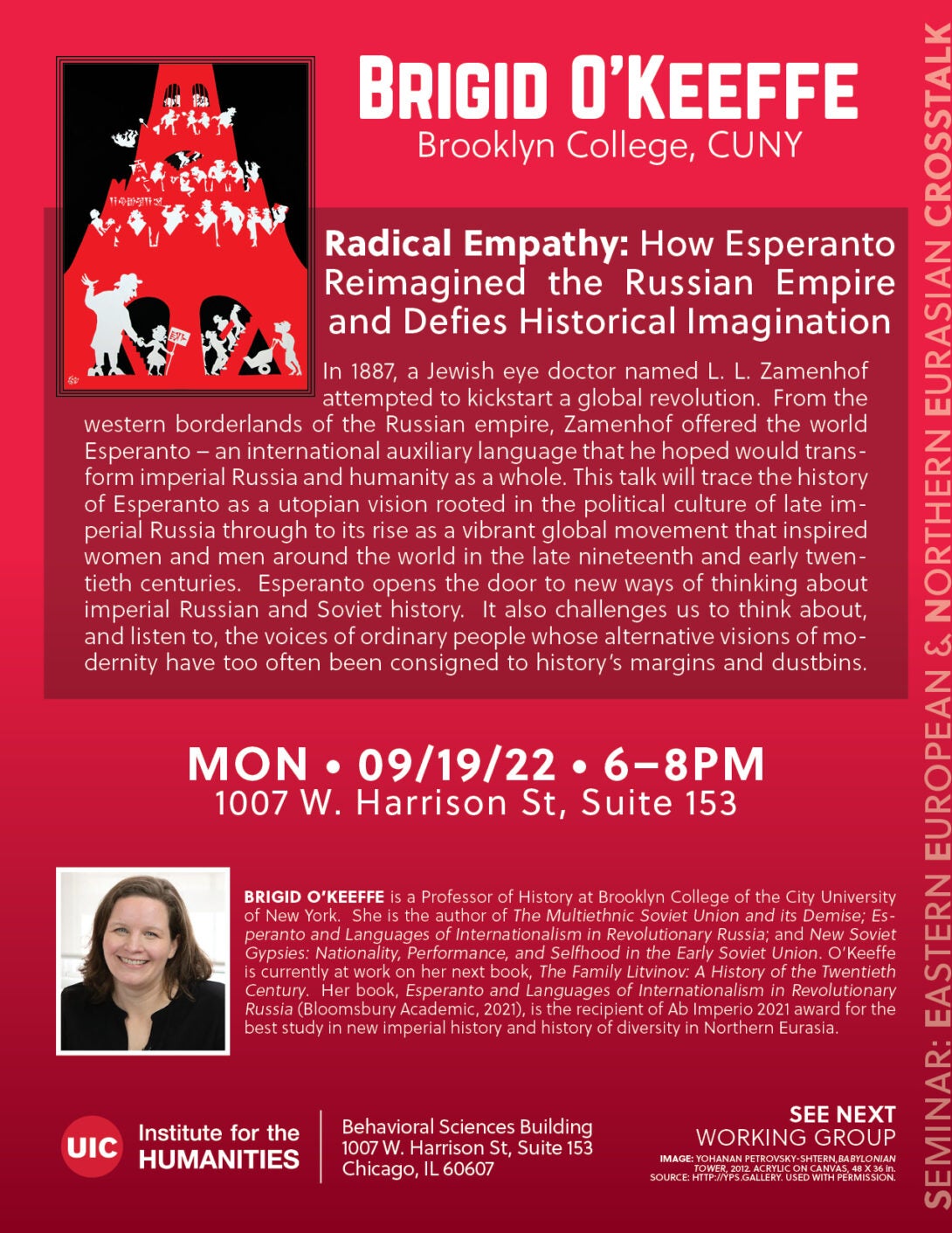Radical Empathy: How Esperanto Reimagined the Russian Empire and Defies Historical Imagination
September 19, 2022
6:00 PM - 8:00 PM
Location
Behavioral Sciences Building
Address
1007 W Harrison Street, Suite 153, Chicago, IL 60607
Calendar
Download iCal File
Date posted
Aug 23, 2022
Date updated
Sep 14, 2022